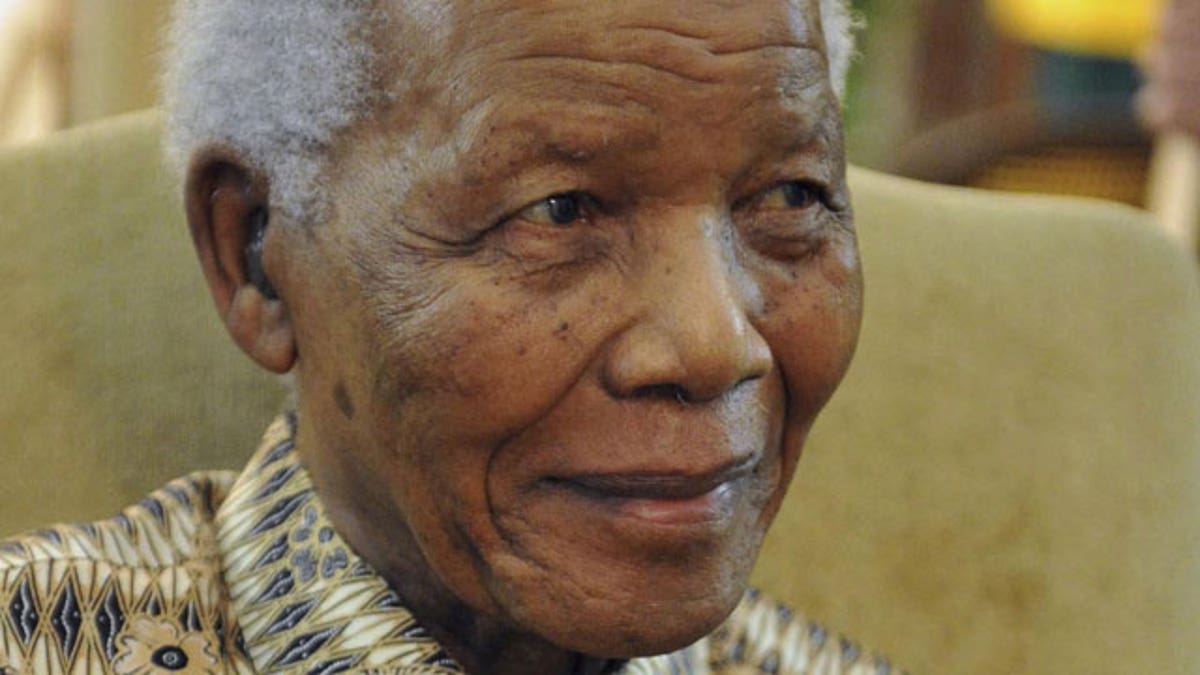
In this photo supplied by Government Communications and Information Services (GCIS) former South African President Nelson Mandela, is seen after casting his early ballot in upcoming local elections at his home in Johannesburg in this May 16, 2011 file photo. (AP/Elmond Jiyane, GCIS)
One of the greatest, most influential men of the 20th century, South Africa’s former President, Nelson Mandela was hospitalized Saturday, according to Presidential spokesman Mac Maharaj. As a political refugee myself, I have always admired Mandela’s dedication to human liberties and the betterment of mankind, which is why I was so sad to hear this news, but I keep praying that he will do well and be released soon.
According to multiple published reports, Mandela was hospitalized Saturday for medical tests and care that was consistent with his age. At this point, very little information about his condition has been released, but age is a major factor in our overall health. We know that the former South African president has a history of tuberculosis, which he acquired during his time as a political prisoner, and that he has been treated in the past for prostate cancer.
Not much else is known about Mandela’s medical history, but looking at the extraordinary life he has lead, I would argue that he has a certain strength about him that most of us are incapable of achieving. But people are still asking, what are some of the problems that can arise at his age?
Of course, medical history is always the first thing one has to take into account, because that can make the aging process even more challenging. But aging causes the cells in the body to start having difficulty reproducing.
As we age, organs like our heart, lungs and kidneys, begin to slow down and are unable to keep up with the physical demands of their function in our bodies. Congestive heart failure often becomes a common problem in our 80s and 90s because the heart loses its ability to pump the blood effectively through the body, causing fluid to build up around the heart and lungs. This internal organ deterioration also makes it very challenging for patients to be given medications, because the natural filtration of both the liver and the kidneys significantly decreases with age as well.
When we get into our 80s and 90s, this kind of cellular deterioration can lead to loss of muscle tissue and flexibility – interfering with everyday activity. There is also loss of calcium in the bones, which makes them vulnerable to fracture.
Many patients in their 90s may also have difficulty maintaining normal blood sugar levels, a normal body temperature of 98.6°F and experience elevated blood pressure. These issues are often due to altering hormone levels that happen naturally as we age.
Other common problems that affect this age group include cognitive deficiencies, like dementia or Alzheimer’s disease, depression, visual impairments, joint pain and hearing problems.
But I always say that it doesn’t matter what your chronological age is, it’s all about your metabolic age. And at the age of 94, former President Nelson Mandela has certainly been blessed in his long life with the ability to show the world his vision of justice and equality. So I will be praying for him, because I know he has a lot more to teach us.
